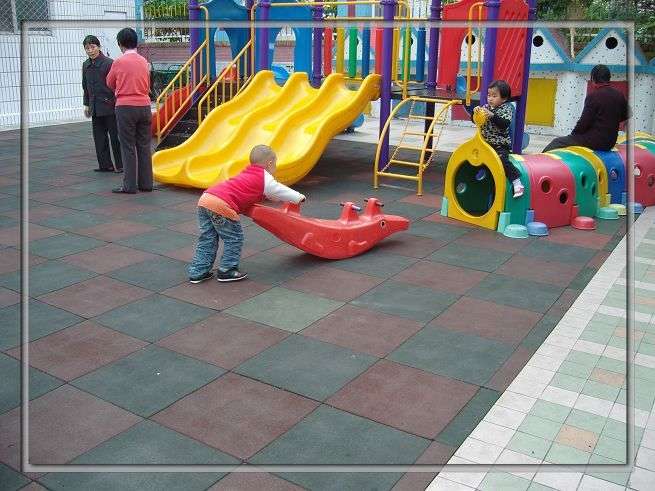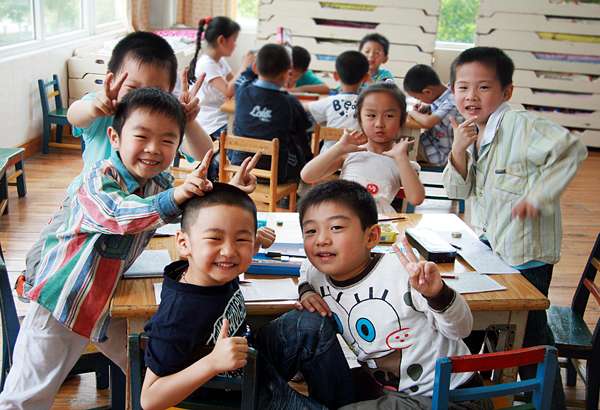Bing Xin once said: “Naughty boys are good, naughty girls are clever.†A short sentence has clearly pointed out the significance of “playing†for children. Through observation and research, we found that young children who love to play are healthy, young children who can play are smart, and young children who play cooperatively can adapt to the future society. So, as an early childhood educator, how to understand children's "play", how to achieve for children to "play high school, play Chinese music, play in mind, play in the realization of"?
"Playing With Love" for Infant Health
Children's health includes both psychological and physical aspects. How can we make young children healthy in both aspects? I think that the nature of protecting children's "love" is of utmost importance.
Love is an interest. The Metropolitan Cosmopolitan has a curiosity about strangers around it and wants to see what happens, what to ask and what to do. Whether it is family or kindergarten education, you should let it go and let young children play. A few days ago, we put a toy fish in the pool of the kindergarten. When the children were free, they would go to the pool to watch, fish, and fish. There were various playground equipments in the kindergarten’s outdoor playground. Whether it is an activity class or a class, you will climb, slide, and play on large children's slides or climbing balls. In the kindergarten's music game area, many musical instruments are open, and children sing and beat rhythms inside. I am very happy to have fun dancing.

Love is a temptation. The temptation mentioned here refers to the game materials, game scenes, rules of the game we provide, and the impulse that can stimulate children to participate. Recalling our childhood, playing with mud, playing with sand, playing with water, climbing trees, etc., have become the best memories of the present day. Exploring the good qualities of spirit, courage and courage, hardship and perseverance is forged from that time. For kindergartens, children should be designed and guided to participate in meaningful activities based on the needs of children playing, so that children can have a keen interest in the curriculum. Some time ago, I went to a wood processing factory to find some scrap corners. After some treatment, they were put into the outdoor play area. The children actually regarded them as building babies and they also played many tricks.
Love is a quality. Children who love to play must have a lot of good qualities. For example, playing can bring joy and happiness to children, stimulate exploration and thinking, provide hands-on brain opportunities, and cultivate quality that focuses on concentration. In kindergarten, the implementation of any curriculum is achieved in the “playâ€. We need to squat and play with children together, lead them to catch worms in the garden, catch butterflies in the forest, and look for the leaves in the bushes. Buds ... These close to nature, close to the hearts of children playing, will certainly be able to set a good playing quality for young children.
"Playing" young children are smart
If "love play" is a quality, then "play" is a capability. In early childhood, “playing†is an important way to make young children smart.
"Playing" can train young children to think independently. Through observation, children who generally think independently and complete a task independently will play. In the kindergarten corner game, the same small beads, some children will always play non-stop, some children will appear suddenly angry, crying, laughing and other phenomena, which shows that they have entered the playing of beads Self game. They think independently, why do not the beads obey, "run"; Why do beads run low and not run high; etc.

"Playing" can cultivate divergent thinking of children. Children who will play will always turn some simple toys into fantastic ideas. In the same pile of wood, we do not need to intervene, not to need guidance. Children naturally have a lot of good works to show, and they will continue to improve their works. Some children will set up a house first, then add a tree, a river ditch, and a fence next to it. Later, after the children's discussion, they will also build a yard and say that the family is too lonely. In fact, each child has the experience of playing in this way, but also has the ability to play. It only requires parents and teachers to change their concepts, to accept and recognize the children's experience and play each time.
"Playing" can train young children to concentrate. Children who will play will have a keen interest in their toys, materials and games. In the process of playing, they are not easily influenced and interfered with by the outside world. They tend to concentrate and concentrate. Sometimes even forgetting to go to the toilet, they naturally enter a state of ecstasy. This is actually a kind of concentration. Excellent quality. How can we allow young children to "play"? I think we can start with the following three aspects: First, let young children "play." The company's companionship is not a surrogate, but an inspiration and a record. The second is to allow young children to "play." Children's games and toys are limited, but the gameplay is varied. We must find ways to allow young children to use their brains and keep the toys playing a new role. The third is to allow young children to “play†when thinking and exploring. It is actually not easy to let young children "play". Therefore, we should point our children at a proper time and then let the children learn and explore.
"Cooperation play" children's social adaptability
There are individual differences in young children. Often heard from the words of many parents, "Go and play with your brother and play with your sister..." In fact, such parents are open-minded and intelligent. Children's play needs the participation and cooperation of small partners, so as to form a sense of cooperation between partners, and achieve the purpose of cooperation to complete the task.
Foster children's sense of cooperation. In the process of playing together, some young children can actively and effortlessly perform tasks for the purpose of accomplishing tasks. Some children can independently assign tasks to their partners in accordance with their tasks. Some children can actively cooperate with the overall task to complete their tasks. The sense of cooperation needs to be continuously formed in cooperation and play, so that more children with a sense of cooperation can influence children who are not good at cooperation or have a low ability to cooperate, so as to cultivate a good sense of cooperation.
Foster young children's ability to cooperate. A basket of building blocks in a kindergarten, if each child takes a few pieces to play, it is estimated that every child can't play any good tricks. Therefore, the teacher needs to cultivate the child's sense of cooperation, let the three or five children form a cooperation team, use the building blocks of each person to complete a work together. The children looked at the blocks in their hands. Some said they could build walls, some said they could do doors and windows, some said they could do roofs, and some said they could do chimneys.... A beautiful piece came out.
Cultivate young children to adapt to the future society. The living environment of young children is also a small society that allows young children to play together. The ability and literacy that they create can easily adapt to the future society. In the pool at the kindergarten, we put a small boat. The children can't wait and scrambling to squeeze the edge of the pool. No one can get a boat. At this time, some children stood up and made good ideas. He thought everyone was going to line up, so the children lining up and playing on the boat. Later, another child said that we couldn’t take a boat for too long. Otherwise, The children couldn’t play; and later, there was a phenomenon in which the little boy helped the young girl to get on and off the boat, pull the boat, and draw water. These are all the skills and qualities that they showed in the process of playing together. It’s a little harmony. society.
Kindergarten is a world where young children play happily, grow up healthily, develop thinking, and inspire wisdom. In early childhood education, you must not erase the child's personality and nature, and you must not deprive children of the right to play. Let young children happy and meaningfully play in kindergartens, and cultivate children's ability to speak, do, and share. This will ultimately promote the healthy growth of children in the “playâ€.
The company's Sports Equipment Co., Ltd. warm reminder: Caring for children's healthy growth, starting from paying attention to children's safety!


Waterproof Bag,Waterproof Pouch,Waterproof Bags For Boating,Waterproof Daypack
Danyang Doing Articles Co.,Ltd , https://www.dydoing.com